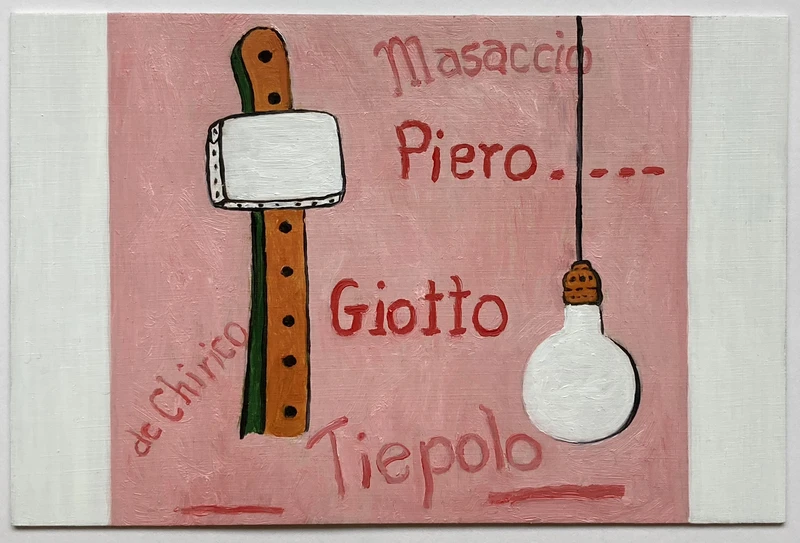Filippo Caramazza: Guston Reloaded
10 Jun-16 Sep 2022


Handel Street Projects is pleased to present an exhibition of work by Filippo Caramazza: Guston Reloaded. As the exhibition’s title Reloaded suggests, the show raises questions of its authorship when another artist’s work is clearly present. At the same time, the title refers to the recent controversy surrounding the proposed block-buster touring show: Philip Guston Now, which was pulled by its four sponsoring art museums – pre-empting its reception – for fear of what some of the images in Guston’s work could unleash in the wake of the murder of George Floyd. The rest, as they say, is history.
In presenting a series of post-card sized paintings, oils on copper plates, that sample Guston’s oeuvre, Caramazza – and by extension, Handel Street Projects – hitch a ride on the back of that history. And yet Handel Street Projects is not The National Gallery of Art, Washington DC, the Museums of Fine Arts in Boston and Houston, or Tate Modern – (all scheduled to stage the touring exhibition) which, in this context gives it a power and readiness to show work, that the bigger, less independent institutions lack. And there is another difference; the ‘Gustons’ on show are copies, rendered in miniature. Caramazza’s ‘Gustons’ present as a commentary on the power of institutions to shape our relationship to the image. With the Philip Guston Now touring exhibition reinstated at each of the four venues, Caramazza’s ‘Gustons’ become another aspect of its history.
The question of who determines what we see – and also how we see it – is a politically insistent one, which will inevitably haunt Guston Reloaded, and indeed, there is a question about whether or not Caramazza’s ‘work’ can ever escape the ‘difficulties’ seen by some in Guston’s. But the show also exceeds its reference to Guston, precisely in taking shape through the age-old practise of the copy. In doing so, it turns from the ‘art’ of US politics to the politics (or dis-united states) of art, and in particular the issue of appropriation, which artists continue to mine without as yet exhausting it.
Taken from Caramazza’s Museum of the Goldfinch which comprises small-scale, painted reproductions of other artists’ work, often sourced in post-card form or as found in catalogues etc., this work focuses the viewer’s attention on its pocket-sizing. With that comes the virtuosity of down- sized brushstrokes. And here is painting for the pocket in another sense as well, when, with the shift in scale, significantly reduced from its originals, comes the vista of the drawing room and the passion of the private collection. With this seemingly slight gesture, another paradigm of audience and ownership is brought into view; one which finds a fitting home precisely in the front rooms of thehouse which form Handel Street Project’s gallery space.
Filippo Caramazza was born in London in 1972. He gained his BA (Hons) from Byam Shaw School of Art in 1997 followed by Postgraduate Diploma (Distinction) from the University of Arts, London in 2006 and MA in Painting from the Royal College of Art in 2008. His work is in many important collections including: The British Museum; Hiscox Collection, New York; Royal College of Art; Conran Collection, London and many private collections in US and Europe.